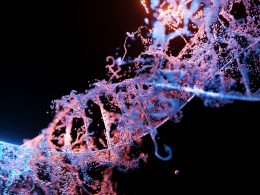Introduction
Biotechnology has revolutionized the way we think about health, food, and the environment. From genetically modified crops to gene editing technology, biotech advancements have promised to solve some of the world’s most pressing problems. However, with great power comes great responsibility – and ethical questions abound as we explore the possibilities of biotech. So let’s dive into this fascinating topic and examine both its benefits and potential pitfalls.
What is Biotechnology?
Biotechnology is a field that involves the use of biological processes, organisms or systems to develop new technology and products for various industries. It combines the principles of biology, chemistry, physics, engineering and computer science to create innovative solutions for different sectors such as agriculture, healthcare, food production and environmental conservation.
The scope of biotech is vast and includes areas like genetic engineering, cell culture research, bioinformatics analysis and more. Biotechnology has enabled us to develop new vaccines for diseases like COVID-19 in record time by using messenger RNA technology. It has also allowed farmers to produce crops that are resistant to pests without the need for harmful pesticides.
Biotech advancements have been instrumental in treating previously incurable diseases like cancer through personalized medicine that uses a patient’s genetic makeup to create targeted treatments. The possibilities with biotech are endless; from creating sustainable energy sources from algae-based biofuels to developing lab-grown meat alternatives that reduce our dependence on animal farming.
Biotechnology offers tremendous potential for improving our lives while raising some ethical questions about its impact on society and nature.
The Different Types of Biotechnology
Biotechnology is a diverse and rapidly advancing field with many applications in various industries. There are several types of biotechnology, each with its own unique approach to manipulating biological systems.
The first type of biotechnology is medical or pharmaceutical biotechnology, which involves the use of living cells and organisms to create drugs and therapies for human diseases. This has led to significant advancements in healthcare, such as the development of vaccines for infectious diseases like COVID-19.
Another type of biotech is agricultural biotechnology, which focuses on improving crop yields and enhancing food production through genetic modification. This includes creating plants that are resistant to pests or able to survive harsh environmental conditions.
Industrial biotechnology uses microorganisms like bacteria or fungi to produce useful products such as enzymes used in laundry detergents or biofuels. This sustainable approach reduces reliance on fossil fuels while providing alternative solutions for energy needs.
Environmental biotechnology addresses pollution issues by using natural processes like microbes to break down pollutants into harmless substances. It also includes techniques such as phytoremediation where plants can extract harmful contaminants from soil and water sources.
The different types of biotech demonstrate how science can be applied in various ways to improve our lives while raising ethical questions about their impact on society and the environment.
Pros and Cons of Biotech Advancements
Biotechnology has brought about significant advancements in different fields, including medicine, agriculture and environmental science. These advancements have led to a range of benefits that can positively impact human lives.
One of the main advantages of biotech is its ability to develop new treatments for diseases. Biotech research has enabled scientists to understand genetic diseases better and find ways to treat them effectively.
Biotechnology also plays an essential role in developing sustainable agricultural practices. By using genetically modified crops, farmers can produce larger yields while reducing the use of pesticides and herbicides.
However, biotech advancements are not without their disadvantages. One major concern is the potential environmental risks associated with genetically modified organisms (GMOs). There is evidence that GMOs may harm non-target species or disrupt ecosystems by spreading uncontrollably.
Another disadvantage relates to access and affordability issues concerning biotech products. New medical treatments developed through biotechnology often come at a high price point, limiting access for low-income individuals who need them most.
In summary, it’s evident that biotech advancements offer several benefits; however, we must be mindful of their potential drawbacks as well. As we continue exploring these ethical questions surrounding biotech technology development, it’s crucial that we weigh both sides carefully before making any decisions regarding its applications moving forward.
Ethical Questions Surrounding Biotech
The advancements in biotechnology have raised various ethical questions that need to be considered. One of the main concerns is genetic engineering, which involves altering genes or DNA sequences to enhance certain traits. This can lead to a slippery slope where scientists may attempt to create “designer babies” with specific physical and intellectual attributes.
Another issue is biohacking, which involves modifying one’s own body using technology. While this can potentially improve health outcomes for individuals, it also raises concerns about safety and regulation.
Additionally, there are concerns about access and equity in biotech advancements. If only the wealthy can afford expensive gene therapies or other treatments, this could exacerbate existing social inequalities.
The use of animals in biotech research also raises ethical questions around animal rights and welfare. Critics argue that animals should not be subjected to experimentation for human benefit.
While the potential benefits of biotech advancements are vast, it is important to consider these ethical questions and ensure that progress is made in a responsible and equitable manner.
Alternatives to Biotech Advancements
As the ethical questions surrounding biotech advancements continue to arise, it’s important to consider alternatives that could be just as effective without the potential risks. One alternative is using traditional breeding methods to develop new crops and livestock. By selecting traits through natural means, we can avoid any unforeseen consequences that may come with genetic modification.
Another approach is utilizing organic farming practices such as crop rotation and intercropping, which can improve soil health and yield without relying on genetically modified organisms (GMOs). Additionally, precision agriculture techniques like drone mapping and GPS-guided machinery can enhance efficiency while reducing pesticide use.
Researchers are also exploring the potential of gene editing through non-biotech means such as CRISPR-Cas9 technology. This approach allows for precise modifications of genes within an organism’s genome without introducing foreign DNA.
Ultimately, these alternatives offer promising solutions to many of the issues associated with biotech advancements while still allowing us to make progress in areas like sustainable agriculture. As we continue to debate the ethics of biotechnology, exploring these options will become increasingly important in developing a more responsible approach toward scientific progress.
Conclusion
Biotechnology advancements have revolutionized the way we live our lives. From healthcare to agriculture, biotech has provided us with solutions that have improved our quality of life beyond measure. However, as with any new technology or practice, there are ethical questions that need to be addressed.
It is important for us to consider the long-term effects of these advancements and ensure that they align with our values and beliefs. We must tread carefully in this field so as not to compromise on the safety and well-being of individuals and society at large.
Moreover, it is essential for us to explore alternative methods that can help achieve similar goals without compromising ethics or human safety. As a society, we should work towards making informed decisions about how biotech should be used and regulated.
In short, while biotech advancements hold immense potential for improving our future prospects; it’s equally crucial for us to maintain a balance between progress and ethics. By doing so, we can ensure sustainable development while safeguarding human values and dignity over time!











